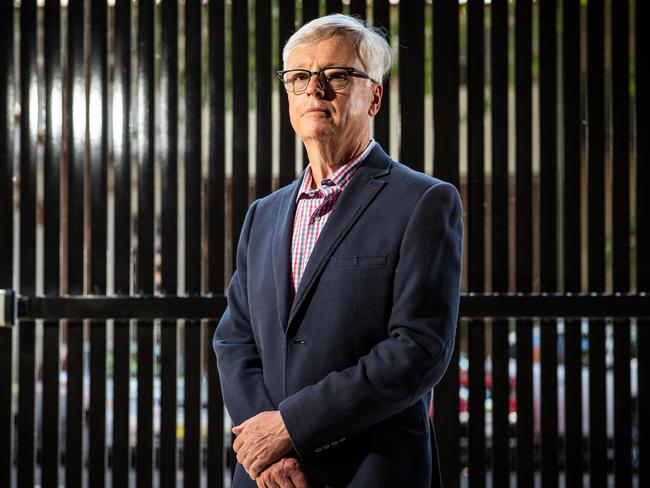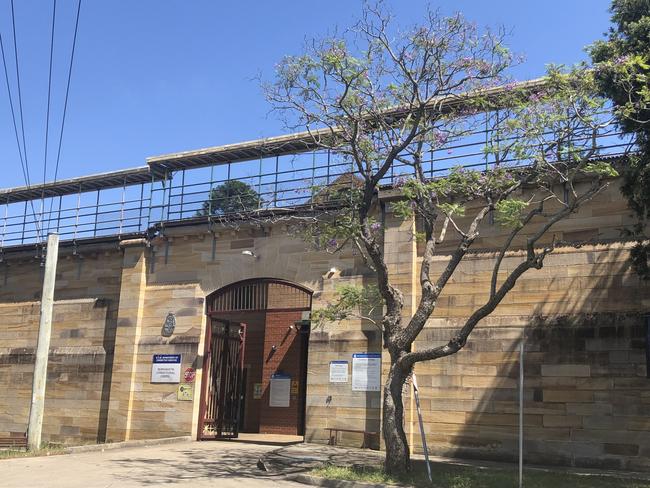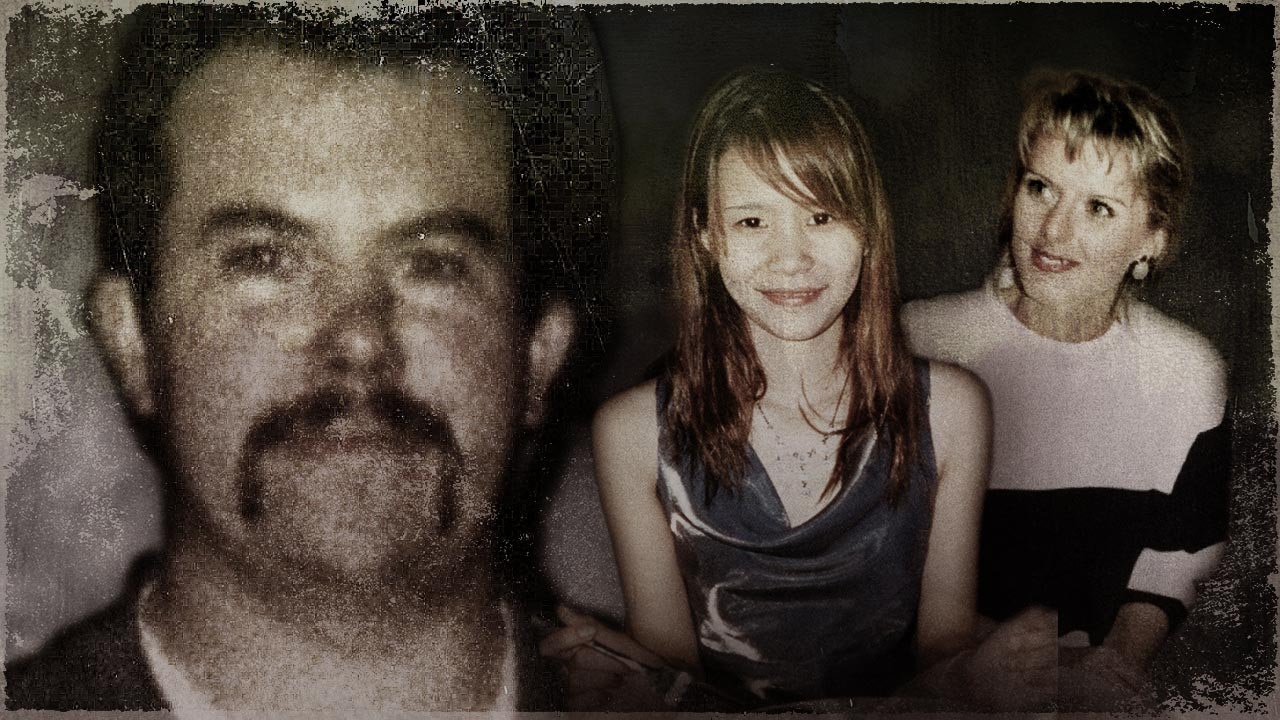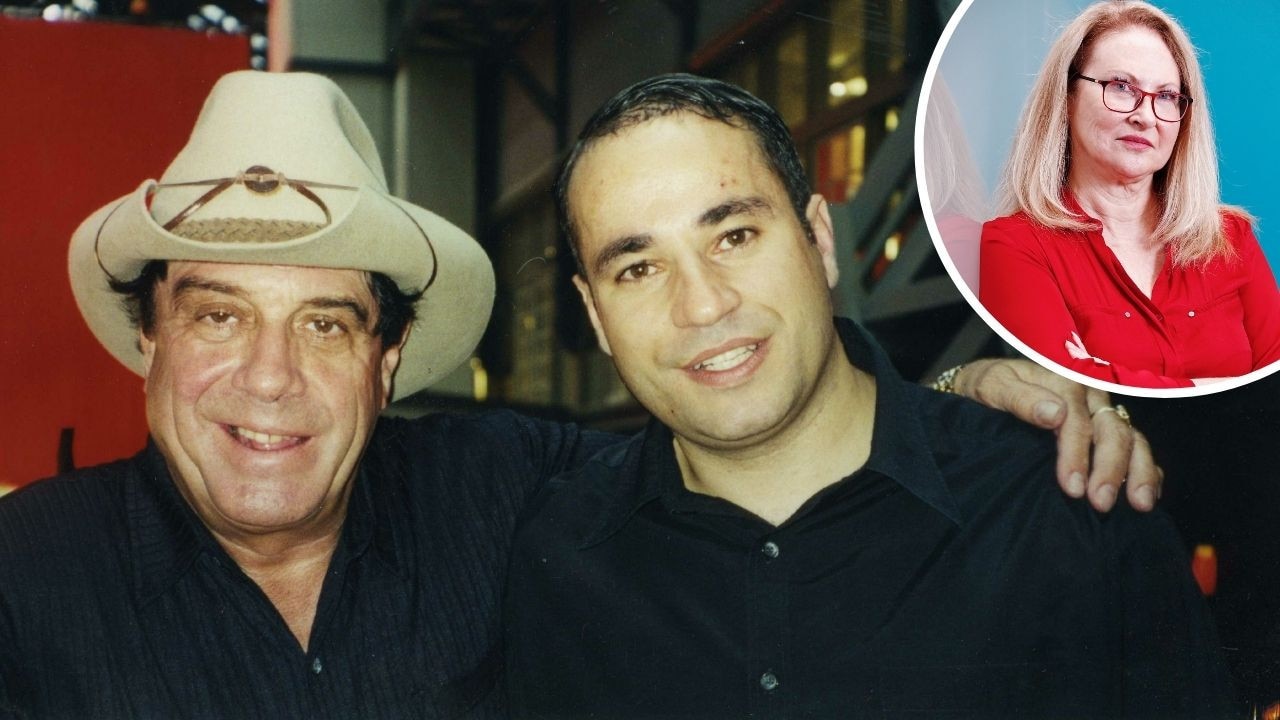Twisted Minds podcast: How serial killer tried to bring back dead son
Prisoners were being found murdered in their cells by a deranged inmate. It’s one case that still haunts prison psychologist David Mutton. Listen to our Twisted Minds podcast.
Twisted Minds
Don't miss out on the headlines from Twisted Minds. Followed categories will be added to My News.
They were being pecked off like flies. Prisoners were being found murdered in their cells, snuffed out by an unidentified jailhouse assailant.
But for the people in the know, including the jail’s resident prison psychologist, David Mutton, the suspect was obvious.
The man was a deranged serial killer on a mission to kill seven people. By the time he was taken into custody, he’d only got up to three … which meant he needed four more dead bodies to make his tally.
“When I was working in Parramatta Gaol there were actually some prison deaths, and we think it was one particular prisoner,” Mr Mutton said on the Twisted Minds podcast.
“I’ve got to be careful now talking about specifics, but there was one prisoner who, because of his psychological and psychiatric condition - which I think was not psychopathy but might have been a bit of psychopathy mixed with psychosis – had a really disturbed grip on reality.
“He was given by an “angel” the message that he had to kill a certain number of people in order to bring back his dead son. So he went on a bit of a spree to build up to that particular number. And he didn’t get to that number, but he was well on the way to it.”

Mr Mutton would not name the inmate in question but the killer’s story of being inspired to murder after his wife accidentally killed their newborn son while breastfeeding goes down as one of strangest in crime history.
The inmate would later talk about his case on a UK chat show.
“I didn’t go to my son’s funeral in the sense of going,” he revealed.
“Three months later, I went down to his grave. I was on Angel Dust, PCP as it’s known, and I hallucinated and my son came back in the light and he was about 19, 18-year-old and he said ‘Dad, kill seven people and I’ll come back to life’.
“Within half an hour there was one person killed on the grave”.
Years later, Mr Mutton still recalls his encounter with the offender as one of the most chilling of his career.
“That media often portrays dangerous people as psychotics, you know, the mad person with the glittery eyes and things like that. But most people in prison aren’t at that level.
Listen to the new episode of the podcast here:
There’s certainly a lot with mental illness, but it’s more like depression and anxiety, your garden variety kind of psychological conditions.
“So it’s really rare to get psychopathy and psychosis mixed, and that can be really potent. That’s probably the kind of “monster” you see in movies but those people they’re very, very rare in prison. In fact, when psychiatrists and psychologists get one of them, they get quite excited,” he said.
After cutting his teeth as a prison psychologist at Parramatta Gaol, during one of the toughest periods in history, Mr Mutton joined the NSW Police, where he provided psychological support to police, particularly regarding trauma and the undercover unit.

He recalls one hilarious incident during training for the undercover officers.
What was unfolding before him was an important role play exercise, in which police training to be undercover officers were having their gall tested.
Before him, Mr Mutton was witnessing a fiery confrontation between two officers, who were both impersonating crooks.
“You’re a f**king cop!” accused one, testing his colleague’s commitment to his assumed criminal identity.
“No, I’m not! I swear I’m not,” he retorted.
“Well, you stink,” the first officer persisted.
“You smell like you’re wearing Brut. And you’re wearing the black police socks too” the accuser, pointing to his colleague’s ankles and the distinctive NSW Police uniform socks poking out from beneath his trouser leg, said.

The oversight had those involved in hysterics but in the real-world such a mistake could be enough to cop a bullet.
“It’s those subtle things that some people just can’t shake. Whereas those that are really happy to shake all those police attributes, they’re the ones you probably have to watch a little bit more closely because they can shed that police skin very easily,” Mr Mutton said.
During his 11 years with the NSW Police, the former chief psychologist discovered shifting identities could be a minefield for officers.
“We know there are cases where they probably have been submerged into that criminal lifestyle and then they probably started to become crooks, who are now pretending that they’re working for the police, but they’re actually probably now working more for the crooks,” he said.
“So that’s why having a stable sense of identity is so important and having people to check-in, whether they be supervisors or psychologists to keep you on the straight and narrow.”
Mr Mutton was also involved in assisting the recruitment of undercover officers and he always looked for one quality.
“You’ve got to be able to communicate really well because “undercover” is all about communication – being able to get people, usually offenders, and bring them on side with you so they can trust you. You want them to be able to trust you enough to actually spill the beans on certain issues … so it’s how you build rapport with people, pay attention to them, but don’t intrude.

“In some regards, the best undercover officers are ones that are not too intrusive themselves in terms of their personalities or features because to be a good undercover person, you always have to be able to blend into the background and become part of the environment, so sometimes being featureless can be a great asset,” he said.
While living 24/7 as a crook is rare, most undercover placements are kept secret, even from other cops.
“Most undercover work is like a job, so you meet the person, do the bust, get the information, and come back. So they often have a covert office and generally other police don’t know where it is but when you go back there you’ve got your supervisors there and police stuff around the place to reminds you, Police Weeklies and things like that. But there’s no uniforms, nothing that identifies it as a police station,” he said.
Mr Mutton has retired from the police and now helps foster a new generation of forensic psychologists at the University of Western Sydney.
To hear his full episode about life as a police psychologist and his work in some of NSW’ toughest men’s and women’s prisons during the wild 1980s.



